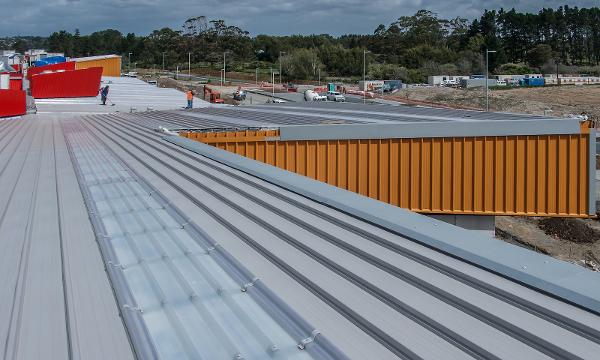Exterior Metal Cladding in New Zealand
New Zealand's unique climate and diverse architectural styles call for durable and versatile building materials. Exterior metal cladding has emerged as a popular choice among architects, builders, and homeowners for its numerous benefits and wide range of applications. This article delves into the advantages of exterior metal cladding, explores different types of metal cladding, and provides practical insights for selecting the right option for your project in New Zealand.
The Climatic Challenges of New Zealand
New Zealand's climate varies significantly across regions, from the sub-tropical north to the temperate south. The country experiences high UV levels, heavy rainfall, strong winds, and occasional snow, which can pose challenges for building materials. Exterior metal cladding offers a robust solution to these climatic challenges, providing excellent weather resistance and longevity.
Types of Metal Cladding
Aluminum Cladding
Aluminum cladding is lightweight, corrosion-resistant, and highly durable. It is an excellent choice for coastal areas in New Zealand, where saltwater exposure can be problematic for other materials. Additionally, aluminum's reflective properties can help reduce heat absorption, contributing to energy efficiency.
Steel Cladding
Steel cladding is known for its strength and durability. It is available in various finishes, including galvanized, coated, and painted options, offering both aesthetic appeal and enhanced protection against rust and corrosion. Steel cladding is suitable for a wide range of applications, from residential homes to industrial buildings.
Zincalume Cladding
Zinc cladding is celebrated for its natural patina, which develops over time and provides a self-healing property that helps resist corrosion. This type of cladding is highly durable and low-maintenance, making it a popular choice for both modern and traditional architectural designs.
Installation and Maintenance
Proper installation of metal cladding is crucial for ensuring its longevity and performance. It is recommended to hire experienced professionals who are familiar with the specific requirements of metal cladding systems. Regular maintenance, such as cleaning and inspections, will help maintain the appearance and functionality of the cladding, ensuring it remains an effective protective barrier for your building.
Long-Term Cost Benefits
While the initial cost of metal cladding may be higher compared to other materials, the long-term benefits often outweigh the upfront investment. Metal cladding offers exceptional durability, reducing the need for frequent repairs and replacements. Additionally, its energy-efficient properties can lead to lower heating and cooling costs, providing ongoing savings for building owners.
Case Studies in New Zealand
Several successful projects in New Zealand have utilized exterior metal cladding to great effect. For instance, the Te Kura Kaupapa Maori o Nga Mokopuna in Wellington features stunning aluminium cladding that withstands the region's harsh weather conditions while providing a modern aesthetic. Similarly, the Hobsonville Point Secondary School in Auckland uses steel cladding to create a durable and visually striking facade.
Environmental Benefits
Metal cladding contributes to sustainability in several ways. It is recyclable, reducing waste and the demand for new raw materials. Additionally, metal cladding's energy-efficient properties can help lower a building's carbon footprint. In New Zealand, metal cladding aligns with the country's building codes and regulations, promoting environmentally responsible construction practices.
Practical Tips for Selecting Metal Cladding
When choosing the right type of metal cladding for your project, consider factors such as the building's location, climate, and aesthetic preferences. Consult with architects and builders who have experience with metal cladding to ensure you select the best option for your specific needs. Additionally, review local building codes and regulations to ensure compliance with all requirements.
Metal cladding offers numerous benefits for buildings in New Zealand, from enhanced durability and weather resistance to energy efficiency and sustainability. By understanding the advantages of different types of metal cladding and following best practices for installation and maintenance, you can make a valuable investment in your property's future.

